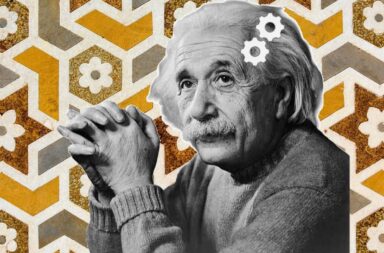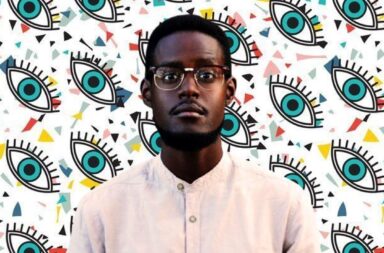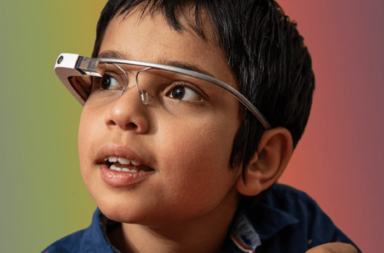Like autism, anime has an unusual place within society. It’s diverse; spanning vast genres and tackling complicated topics. It’s prestigious; influencing much Western media and even winning an Oscar. It’s a community; which, for the most part, is accepting of all tastes. Yet it’s constantly looked down on as juvenile or introverted (and these are some of the nicer things you hear said about it).
These similarities between autism and anime aren’t the only reason why autistic people love anime though, as somewhere between the hand-drawn slices of life and generation-spanning bizarre adventures, autistic people have found an art form ideal for our unique perspectives.
This is a niche where autistic people can be catered for. This is an entertainment form where we can excel. But, this is also a $19b industry where we are not always welcome and, today, I want to explore how this all came to be.
[Feature image photo credit: JohnnyOnSugar]

Why do Autistic People LOVE Anime?
Although our definition of autism is about as consistent as an anime opening, the consensus for the last few years is that there a two sets of criteria when it comes to diagnosing the condition. These are:
- Difficulty in social communication and social interactions
- Having a restricted interest, hobby or activity
Like a particularly exposition-heavy senpai in a season finale of a sports anime, these two criteria will usually hint at why we autistic people do what we do. However, in the case of autism and anime, they are in themselves the explanation. For example:
Finding difficulty in social communication and social interactions
Many autistic people struggle to understand the nuances of non-verbal language or we find difficulty in matching intent to words. This is a bit of a problem in day-to-day life, where people love to say everything other than what they mean but, it’s also why, with anime, we can find a haven.
Put simply, this is because anime does not do things by halves. If a guy slightly likes a girl, you can be sure that the Vesuvius of a nosebleed will make that known. If a character is angry then, after the hard cut to their steaming expression, this will be evident. Even in more quaint affairs, there is usually some kind of inner narration where the protagonist explains their thoughts and, as such, the stories are easier to follow.
This ease of viewing isn’t coincidental though, as ensuring that viewers of any background can enjoy anime is often high up in the minds of the studios commissioning the movies/series. This is perhaps most evident in the translation process where, in place of a simple one-to-one translation, teams will work to consider cultural differences within areas of origin and areas of viewing. They will then use this to improve dialogue where cultural differences occur (or, if you’re in charge of Neon Genesis Evangelion, by cutting entire LGBT plotlines… not cool).
This isn’t to say that anime stories aren’t complex though (I mean just try watching Ghost in the Shell without having to trawl the Wiki for answers). Instead, it highlights that these often incredibly rich narratives are going to incredible lengths to invite viewers from any background.
Somewhat ironically, this makes these shows from around the world perhaps more accessible than most things you will find on your bog-standard Freeview – which is brilliant for people on the spectrum, where communication difficulties can cause all kinds of chaos with our senses.
Having a restricted interest, hobby or activity
That’s not to say that anime should get all the credit for forming this beautiful unison between the autism community and itself, as a big chunk of why autistic people love anime is down to our brain. In particular, the autistic brain loves learning all it can about a certain subject and, conversely, we like things where there are a lot of parallels to draw.
Of course, not all anime IS the same (and, believe me, I have spent a good portion of my life trying to convince others of this). However, due to the nature of its Japanese origin, there are many formalities and themes which are concurrent between series to series.
For autistic people, this means that, unlike live-action TV, anime always has a strange sense of familiarity (no matter what you watch) and this goes far beyond the art style, the tropes and the fact that historical warrior/government official Oda Nobunaga is in every other show.
Circling back to the other side of how autistic fixations develop though, anime also presents an ideal passion as, while it may be a restricted interest, these restrictions are anything but limited as, with every show (no matter its popularity), there will be over 9000 ways to get involved i.e.
- Forums
- Conventions
- Fan-fiction
- Trading cards
- Games
- Apparel
- Plushes
- *ahem* body pillows
- Figures
- Posters
- Pins
- Cosplay
Unlike other autistic interests, where our admiration can fade as we learn more, this means that anime constantly feels fresh, no matter whether your show came out last month or last decade – which is great, as autistic people don’t just enjoy anime, we can also benefit greatly from it too.
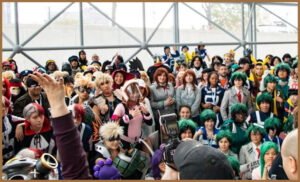
Why Anime is GREAT for Autistic People?
Even to those with a passing interest in the spectrum, it’s clear that there is a connection between anime and autism. Yet, it’s only recently that we have begun examining the implications of how this fascination can be used to educate and support students on the spectrum and, so far, it all looks very promising.
For example, over in Northumbria University, there have been some great think pieces published on how faces in anime may be able to help with emotional processing, whilst other academics have suggested that the topics handled within anime themselves offer steadfast lessons on relationships, employment and how to survive if you were teleported into an online videogame – hey I didn’t say all the lessons would be useful!
Without sufficient data though, it’s hard to say just how true this is or how powerful an education tool anime can be. However, what I can say for sure is that, when it comes to teaching soft skills to autists, anime also serves as a doorway into another community where making friendships is SO much easier.
The anime community offers an ideal way for autistic people to connect to others of similar minds, in that most conversations takes place online or in other controlled environments, whilst the topics themselves are usually of one theme but delve to complexities which go far beyond the age-old question of ‘are dubs or subs better?’
Sadly though, not everybody believes this is how it should be and, as such, the autism and anime communities have found themselves in an uneasy relationship as of late.
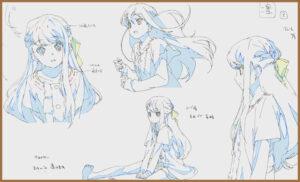
The Uneasy Relationship Between Autism and Anime
So let’s take this down with one punch. Not all anime fans are autistic and not all autistic people are fans of anime. Likewise, of the autistic people who do like anime, some are perfectly content with a passing interest; solely watching heavy hitters like My Hero Academia (which is more or less Harry Potter with superpowers), while others become happily obsessed to a point where they may even watch a Studio Ghibli film which isn’t Spirited Away or Princess Mononoke (if you can imagine such a thing).
Nevertheless, beliefs contradictory to these facts have resulted in autism having a weird place within the anime fandom. Whilst most anime fans are inviting of all diversities and neurodiversity, some in the anime community present toxic behaviour to distance themselves from having connotations with the spectrum.
But this isn’t ‘Why do anime fans HATE people with autism?’. Instead, it shows how gatekeeping and the insecurity of some fans is damaging the opportunities and experiences that the fandom presents. Furthermore, it demonstrates that, on a higher level, the false accusations which people make about anime is really hurting the experiences of the people within the community.
As understanding and appreciation of the two communities continue to be embraced, this is thankfully less frequent, subsequently clearing a way for a fusion between our two awesome circles; where autistic people have a place we can celebrate our passions with like-minded individuals, whilst anime fans will be treated to the incredible takes and alternative perspectives courtesy of the sugoi citizens of the spectrum.

Carry on the Conversation
Let’s keep the love of anime alive in the comments by sharing some of your personal recommendations below. And, if you would like to learn more about how other entertainment media can support autistic people then check out this article on Why Comics Are GREAT For Autistic People.
As always, I can also be found on Twitter @AutismRevised, on Instagram @autisticandunapologetic and via my email: AutisticandUnapologetic@gmail.com.
If you like what you have seen on the site today, then show your support by liking the Autistic & Unapologetic Facebook page. Also, don’t forget to sign up to the Autistic & Unapologetic newsletter (found on the sidebar on laptops and underneath if you are reading this via mobile) where I share weekly updates as well as a fascinating fact I have found throughout the week.
Thank you for reading and I will see you next week for more thoughts from across the spectrum.
See you, Space Cowboy
